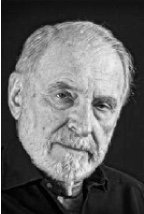Our Speakers
Trudy Album was born in Czechoslovakia, although her town later became part of Hungary during WWII. When the Nazis invaded, her family was sent first to a ghetto, then to several concentration camps. Trudy arrived in the women’s section of Birkenau, a sub-camp of Auschwitz, shortly before her fifteenth birthday. Her mother and three younger siblings had already been sent to their deaths. She was later sent to several other work camps and was eventually liberated by the American Army. She hitchhiked back to her hometown, hoping to be reunited with her father, only to find out that he had been murdered during the Holocaust.
Today, Trudy lives in Suffern, NY and has been engaged with the Holocaust Museum & Center for Tolerance and Education for several decades. Trudy believes Holocaust education is incredibly important for today’s young people and she speaks to middle and high school students across the region, as well as to many college audiences. Though it is difficult to share her experiences during WWII, Trudy is committed to ensuring that the memory, lessons, and legacies of the Holocaust are carried on – and that young people can learn from them.
Sam Bradin was born in Poland on May 1, 1930 in a small town called Salesin close to the German border town of Dombrowa. He was the youngest of his family, which consisted of his parents, four sisters and one brother. Sam was 9 years old when the Second World War started. In 1943, he and his siblings were rounded up and sent to Auschwitz. While there, he was separated from his sisters and sent to the concentration camp, Bergen-Belsen. He and his brother remained there for two years until he was liberated by British forces in 1945. His brother did not survive. Sam believes that he only managed to survive in the camp thanks to his older brother who protected him. After liberation, he spent four years in Sweden recuperating and catching up on the schooling he had missed during the war years. In 1949, Sam came to the U.S. and lived with his aunt in Brooklyn. He now has a large family, consisting of 2 daughters, a son, three grandchildren, and great grandchildren.
Paul Galan was born in Czechoslovakia and immigrated to America with his family when he was a teenager in 1951. He and his family have a unique story of survival from the Holocaust and war years, which makes his testimony something you have never heard before. Through the many sacrifices his father made, the separation of his siblings, and some family members being sent to concentration camps, his immediate family were reunited at the end of the war and all survived miraculously.
After finishing high school Mr. Galan went on to get a Bachelor of Arts degree in film and history from the City College of New York. He began his career as a film editor for documentaries in television and working in the New York film industry. He created his own company in 1968, Gateway Productions, and won many awards for his work.
Now Paul puts his talents to use by telling his story and teaching young adults about the Holocaust. He believes that young people, by hearing firsthand accounts of that human tragedy, might be moved towards a better understanding of the history thereby motivating them to become responsible citizens and make every effort toward assuring a better and safer world for themselves and future generations.
Dr. Alex Levy was born in Berlin, in 1936. His parents fled Germany with him in 1938. He escaped with his mother to Belgium in November of that year. Alex survived the Holocaust by hiding in a Catholic girls' orphanage during the war in occupied Brussels, Belgium. He was reunited with his mother after the war and in 1949 they settled in New York City. Having learned English and being old enough, he volunteered for the US Army during the Korean War. His enlistment ended in 1956, and he attended Brooklyn College. After graduation, he taught English in New York City high schools, and later, writing at Ramapo College. He earned his doctorate in Educational Administration at Columbia's Teacher College in 1986. Alex and his wife have three children and eight grandchildren. They reside in Hickory Hill, an intentional cooperative community in Tappan, New York.
Besides his involvement with the Museum, Alex is involved in a project teaching ping-pong to Parkinson's Disease patients with the hopes of slowing down the progress, of the disease
Alan Moskin was born in Englewood, New Jersey on May 30, 1926. He attended Syracuse University both before and after his military service in World War II.
Alan was drafted into the military service at the age of 18 and served in the United States Army during World War II from 1944 until 1946. He was a member of the 66th Infantry, 71st Division, part of General George Patton’s 3rd Army. At the beginning of May, 1945, his Company participated in the liberation of the Gunskirchen Concentration Camp, a sub-camp of Mauthausen. After the war ended, Alan remained in Europe as a member of the U.S. Army of Occupation during which time he attended the Nuremberg Trials of top Nazi officials.
Alan presently resides in Nanuet, N.Y. and he has spoken to students and community groups throughout the country about his experiences as an infantry combat soldier and a “Concentration Camp” liberator. In addition to his speaking engagements, Alan was recently featured in the documentary “GI Jews: Jewish Americans in WWII” on PBS.
Alan has two grown daughters and seven grandchildren. He currently serves as a Vice President on the Board of Trustees of the Holocaust Museum & Center for Tolerance and Education and is also a Past Commander of the Rockland/Orange District Council of the Jewish War Veterans of the U.S.A.





